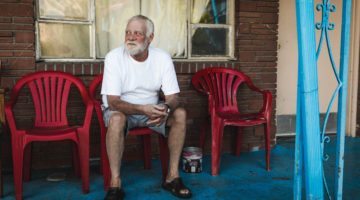By Alexa Simpson
What exactly is a learning curve? Can you define it outside of taking a test? In layman’s terms, it is the rate of a person’s progress in gaining new experience or skills. It’s the idea that you can only really gain new knowledge by changing up your everyday routine. For some people, this may be getting a new job, going for a long run, taking a spontaneous trip to the farmers market or, like what I did, transferring to a new school.
It was hard to visualize the changes that needed to be made on my trek to a new school across the country. I agonized over every detail — “Will I make new friends? Will the classes be harder? If the classes are harder, will it be worth getting lower grades for a more specialized education? Will I like living in Reno, the supposed ‘Biggest Little City?’” The list goes on and on.
Transferring colleges as a junior was challenging. I remember walking down the long slab of concrete that leads from West Stadium all the way through campus. I shuffled past the groups of giggling girls, weaved my way through the backpack jungle of people on a mission to get to class and nearly collided with skateboarders who rushed through the cliques of students.
I was experiencing the same discomfort that so many students have when exploring a new campus. That first moment of putting yourself into a new and uncomfortable situation is going to be hard for anyone. After all, the most difficult decisions in life are the ones that force you to choose between lingering in the familiar or taking a risk. Whether it is finding a new job or moving to a new home, the decision to make a major life change takes courage, and I was facing that firsthand.
On those first few days at University of Nevada Reno, I tried not to look too long at the crumpled up piece of paper that said where my classes were. My mind would wander on those long hauls to class, “I can’t believe there are busses that actually shuttle swarms of people from one side of campus to the other.” I remember thinking, “OK, Alexa, focus. Get to class on time without looking too much like a lost puppy.”
Coming from a small liberal arts college in Nashville, where it only took about five minutes to walk to either side of campus, 10 minutes with the amount of friends I would run into, UNR was foreign to me. At Belmont University, I had a job, an internship and a sorority. I left in hopes of having the best of both worlds — the experience of a tight-knit music college, and the knowledge of a bigger, louder, D-1 school with community spirit like UNR.
In the first years of college, it is hard for students to find their niche. It usually takes a couple semesters for them to even think about getting involved. Once I left my niche at Belmont, it was hard to seek out a new place for myself at UNR, especially coming in as a junior. I was dormant: I sat in my 150-person lectures not listening, I would hear about different clubs on campus and ignore them. I drove to campus, went to class and left.
Everything changed when I started to embrace my major. I was genuinely interested in what the professors had to say and could tell that they cared about the work I was producing. By welcoming the opportunities the Reynolds School of Journalism has given me, like joining the Ad Club, applying for the Integrated Marketing Competition and forming a bond with other journalism students, I have once again been awakened to great windows of opportunity.
If you open yourself up to new possibilities, you will be surprised by the results you find. There are communities all over campus that can help you establish your identity as a member of Wolf Pack. While I may have found my home in “the J-school,” you might find yours in Greek life, the student government or even a club on campus.
I have found that the key to success in not only transferring, but graduating with the notion that you really accomplished something in college, comes down to three important things: find your passion and achieve it, take risks and immerse yourself in a supportive community.
It is so easy for humans to get into that habitual routine — the one that is familiar and easy. You may find that you have stopped trying new things. I was so busy with my routine that it never occurred to me to try and branch out of my friend group or explore new opportunities or places. I had, in fact, stopped my learning curve as many students do without realizing it.
Venturing off with nothing to lose except maybe a little bit of pride can be a great help in getting to know yourself. Students can follow this example in their own lives by taking that loan to go study abroad, by taking that job, by joining that club where they don’t know anyone, by taking that risk. That initial leap is all you need to discover what makes you tick.
Walking down that windy concrete slab, I am now the one on a mission, waving to my friends and smiling when I see that ever so familiar look of the girl staring down at the campus map.
Alexa Simpson studies public relations. She can be reached at dcoffey@unr.edu and on Twitter @TheSagebrush.











